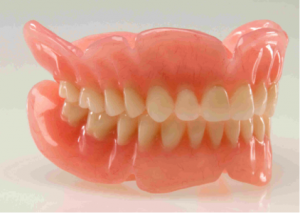 As we get older, our oral health becomes more important than ever. Maintaining proper oral hygiene is not just for your teeth and gums. Senior adults have unique dental needs and challenges. This includes a vital link between a person’s general health and their oral health. By adopting healthy oral habits at home, seeking regular dental care, and making smart choices about diet and lifestyle, you will be well on your way to keeping your teeth strong and sparkling for a lifetime.
As we get older, our oral health becomes more important than ever. Maintaining proper oral hygiene is not just for your teeth and gums. Senior adults have unique dental needs and challenges. This includes a vital link between a person’s general health and their oral health. By adopting healthy oral habits at home, seeking regular dental care, and making smart choices about diet and lifestyle, you will be well on your way to keeping your teeth strong and sparkling for a lifetime.
Certain dental health problems are more common in seniors, they include the following:
1) Tooth Cavities. Cavities are caused by plaque bacteria which breakdown the enamel and cause holes in the teeth. Dry mouth, limited dexterity, and a large number of crowns and fillings to clean around, all increase your chances of decay.
2) Periodontal Disease. Seniors are at higher risk of periodontal disease (gum disease). Gum disease occurs when plaque builds up beneath your gum line causing inflammation and bone loss. Certain medications also cause the gums to swell and bleed and make it more difficult to remove plaque.
3) Root Cavities. The roots of the teeth can also decay. Once gums recede, the unprotected root surface is very easy for the plaque bacteria to attack. With no enamel to protect it, the cavity can progress rapidly to the nerve of the tooth.
4) Tooth Sensitivity. As we get older, our gums may recede, exposing root surfaces. The roots have nerve endings close to the surface which can become increasingly sensitive. If you experience sensitivity, try a sensitivity toothpaste (like Sensodyne). If the problem persists, see your dentist, as the sensitivity may be an indication of a more serious condition, such as a cavity or a cracked/fractured tooth.

5) Dry mouth or Xerostomia. Dry mouth is a common condition in the senior population and one that may be caused by medications or certain medical disorders (like radiation therapy for cancer). If this condition is left untreated, it can cause damage to your teeth. Saliva has a vast number of protective features for the mouth. It is always recommended to take regular sips of plain water to keep the mouth moist. Having regular fruit juices or flavoured waters can cause widespread dental decay the frequency of such sweet drinks should be kept to an absolute minimum. A dentist would be able to advise on a case specific basis.
 6) Denture Issues. Many older people wear dentures. If they are not properly cared for, they can cause dental health problems, especially fungal infections. A sign of such thrush is bright red irritated tissue, itchiness, burning, or a white creamy build up on oral tissues or denture. Just because you have dentures does not mean you do not need a dental examination. You should have an annual check of your denture fit, oral tissues, and oral cancer screening.
6) Denture Issues. Many older people wear dentures. If they are not properly cared for, they can cause dental health problems, especially fungal infections. A sign of such thrush is bright red irritated tissue, itchiness, burning, or a white creamy build up on oral tissues or denture. Just because you have dentures does not mean you do not need a dental examination. You should have an annual check of your denture fit, oral tissues, and oral cancer screening.
Brush at least twice a day with a soft bristle toothbrush and fluoride toothpaste. An electric toothbrush is recommended for seniors as it easier for them to maintain hygiene properly, especially where their dexterity has reduced.
Interdental cleaning such as flossing or use of interdental brushes is imperative to maintain your teeth and gums. Your dentist can recommend the best aid on your case specific basis.

Keep up with dentist appointments. If you maintain a regular appointment schedule, your dentist can monitor your dental health and make adjustments to your care to avoid serious problems down the road.
Take care of dentures. Ensure that you sleep with the dentures out, to allow your saliva flow to reach the places it can’t when the denture is in situ.
To arrange an appointment, feel free to call our reception team on 0114 2377642 or pop in during our normal working hours.
You are now welcome to book your NHS dental assessment for patients aged under the age of 18 only, or organise a New Patient Assessment for adults which costs £65 including any X-rays that are required. Contact us on 0114 2377642 for further information.